How to integrate my Amazon Redshift Warehouse with Power BI?
Introduction
Power BI is a business intelligence (BI) tool, that allows you to connect to, transform, and visualize your data. There are many different types of visuals to choose from in Power BI according to the nature of data you are trying to graphically represent. Thus, Power BI makes it easy for you to create complex and visually rich reports, using data from multiple sources.
In order to link your Amazon Redshift Data Warehouse to Power BI, you will need to install Power BI desktop.
Steps to Connect Amazon Redshift to Power BI
-
Sign in to Power BI. You will reach the Welcome screen on your display if you are logging in for the first time.
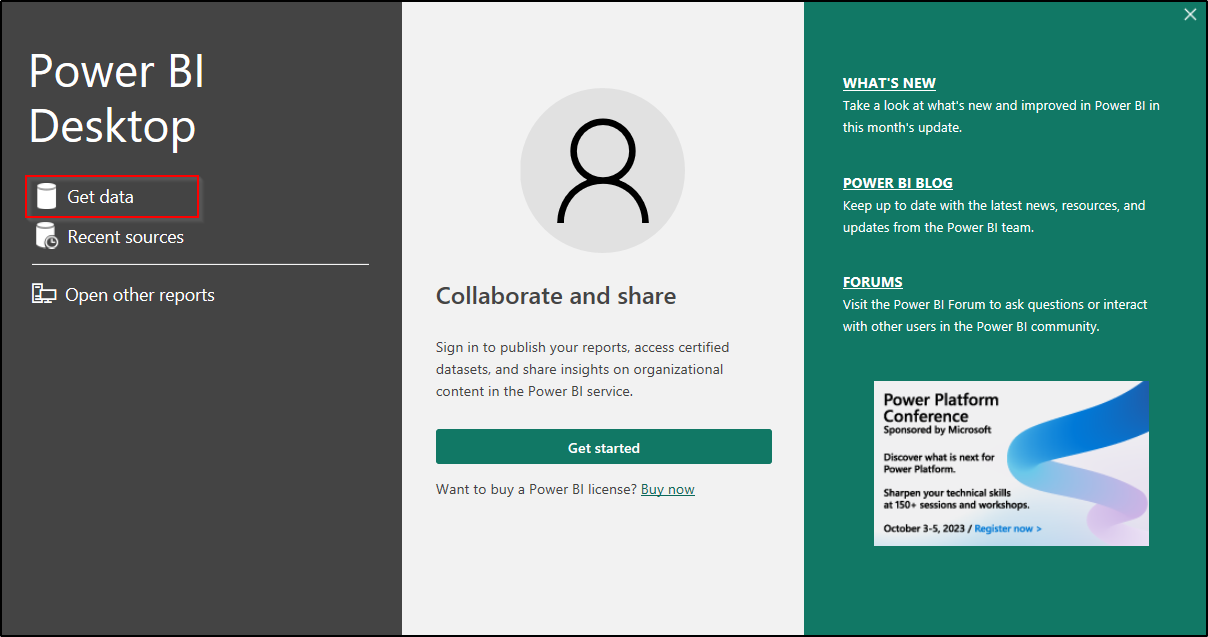
-
If you close the welcome screen, you will reach the home page of the Power BI User Interface.
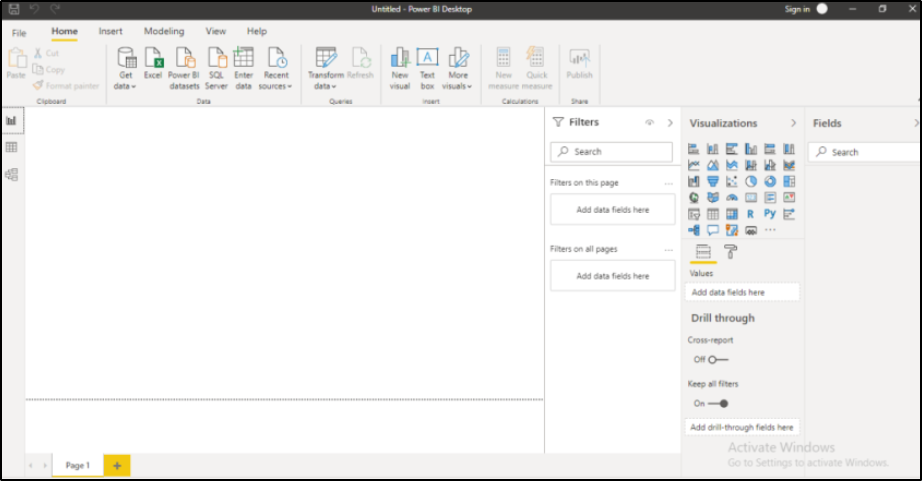
-
In order to connect to a data source you can either use the 'Get Data' option on the welcome screen or access the 'Get Data' option from the Home tab on the top ribbon.

-
From the Home Tab, select Get Data > More.
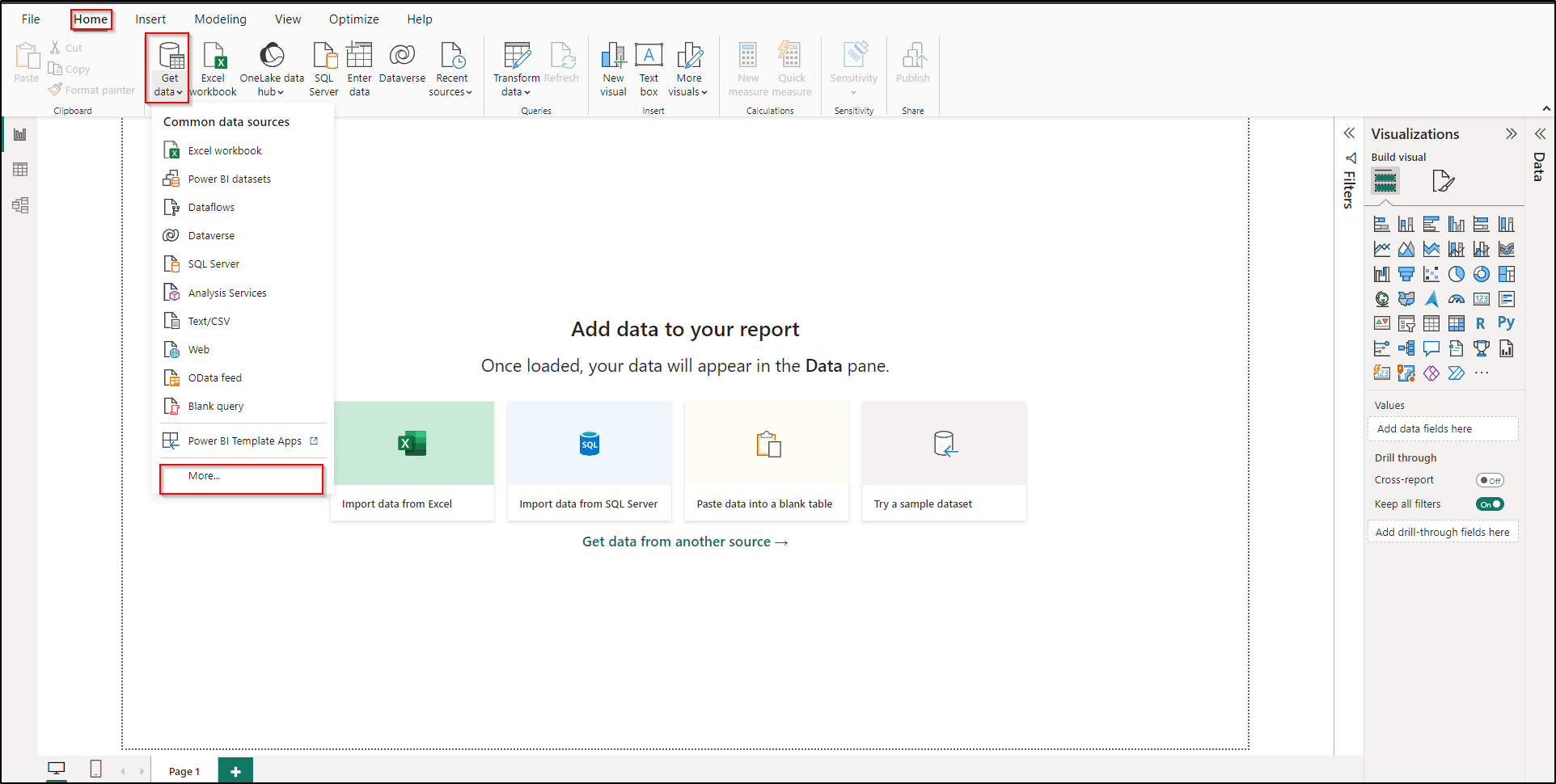
-
The 'Get Data' window will appear, listing the various categories of Data Sources to which Power BI Desktop can connect. You may use the Search Box to search for Amazon Redshift. Else, click on the 'Database' category and locate Amazon Redshift in the list. Click on Connect.
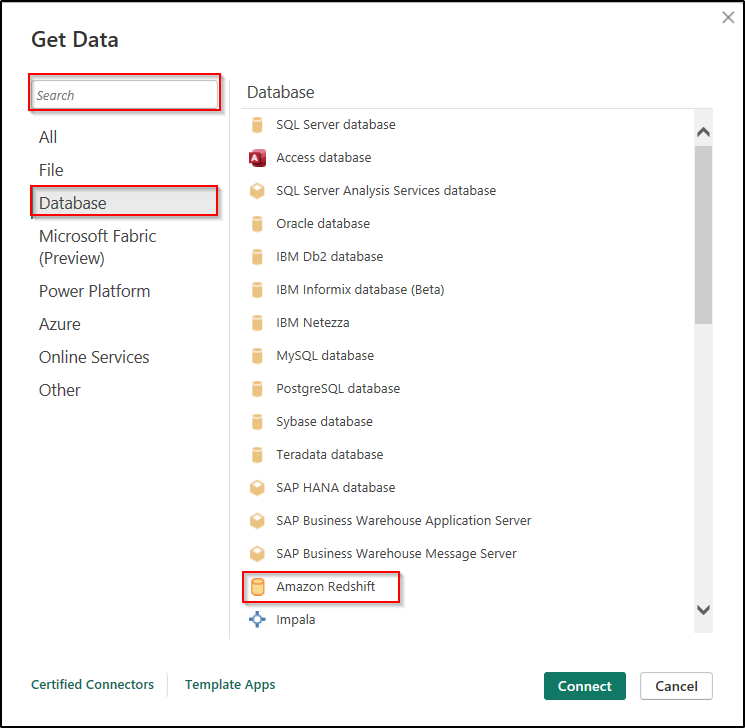
-
In the next screen, enter the server name where your data is located and the name of the Amazon Redshift database you want to access. You can also give your inputs on 'Advanced Options'(optional) for your connection. Else, to use default settings, click on OK.
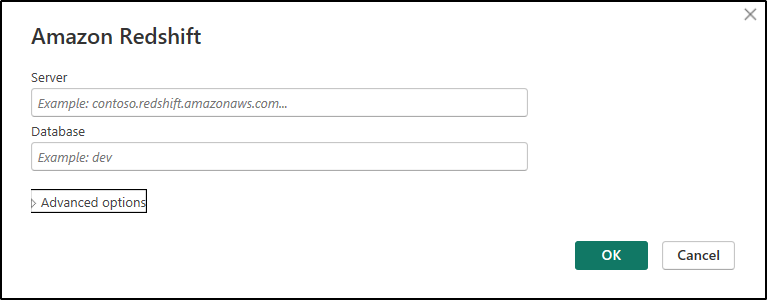
-
Next you will be prompted, to enter your credentials(User name and Password) for the Amazon Redshift authentication type. Click on Connect to continue.
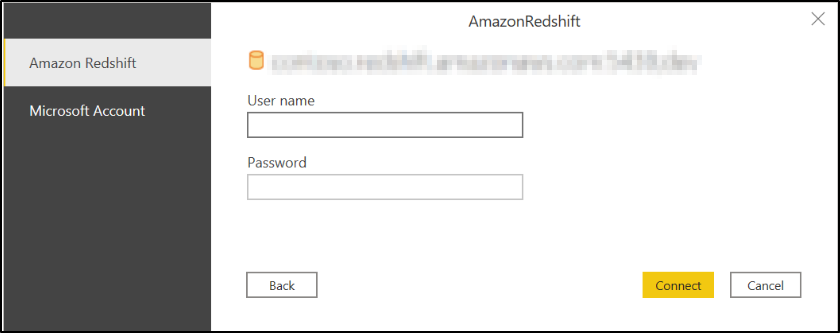
-
A Navigator window will be displayed on your screen. Here you will be able to view your resources from the Amazon Redshift data warehouse to which you have access. Choose the database, and the table from which you wish to load data. Once you have selected the required table, click on Load. If you wish to carry out any transformations you may do so by clicking on Transform Data.
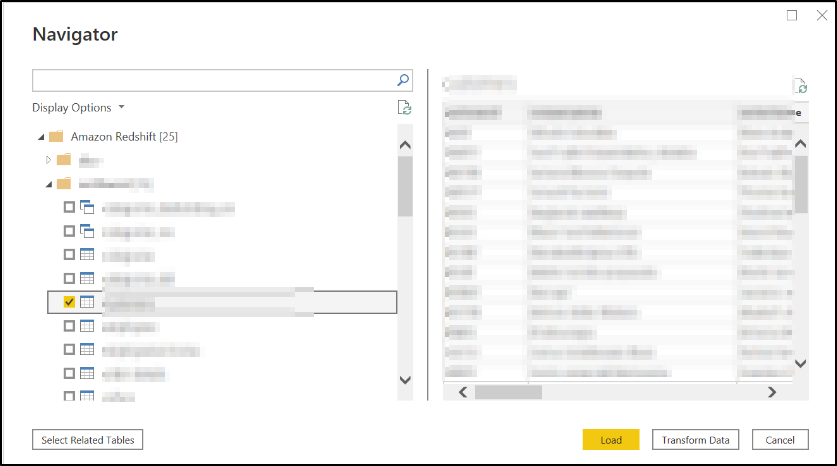
-
Lastly, you will be prompted to choose the mode of connecting Amazon Redshift to Power BI. There are two options available:
-
If you choose the Import option, data from Amazon Redshift will be copied to Power BI. This option offers to you the advantage of providing access to the full features of Power BI desktop. You can make manipulations/ transformations to your dataset without altering the original datasource. However, this method is not suitable if you want to refresh your dataset at a near real time frequency.
-
If you choose the DirectQuery option, this will set up a live connection to this dataset. Since the data is synchronised, any change in Amazon Redshift records will automatically be updated in Power BI. However, you can not make any manipulations/ transformations to your dataset using this mode.
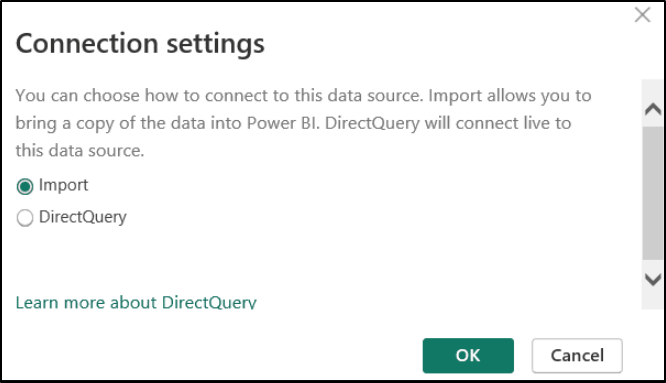
-
-
Once you have selected the required importing option, click on OK to make your Amazon Redshift data available for visualization in Power BI.
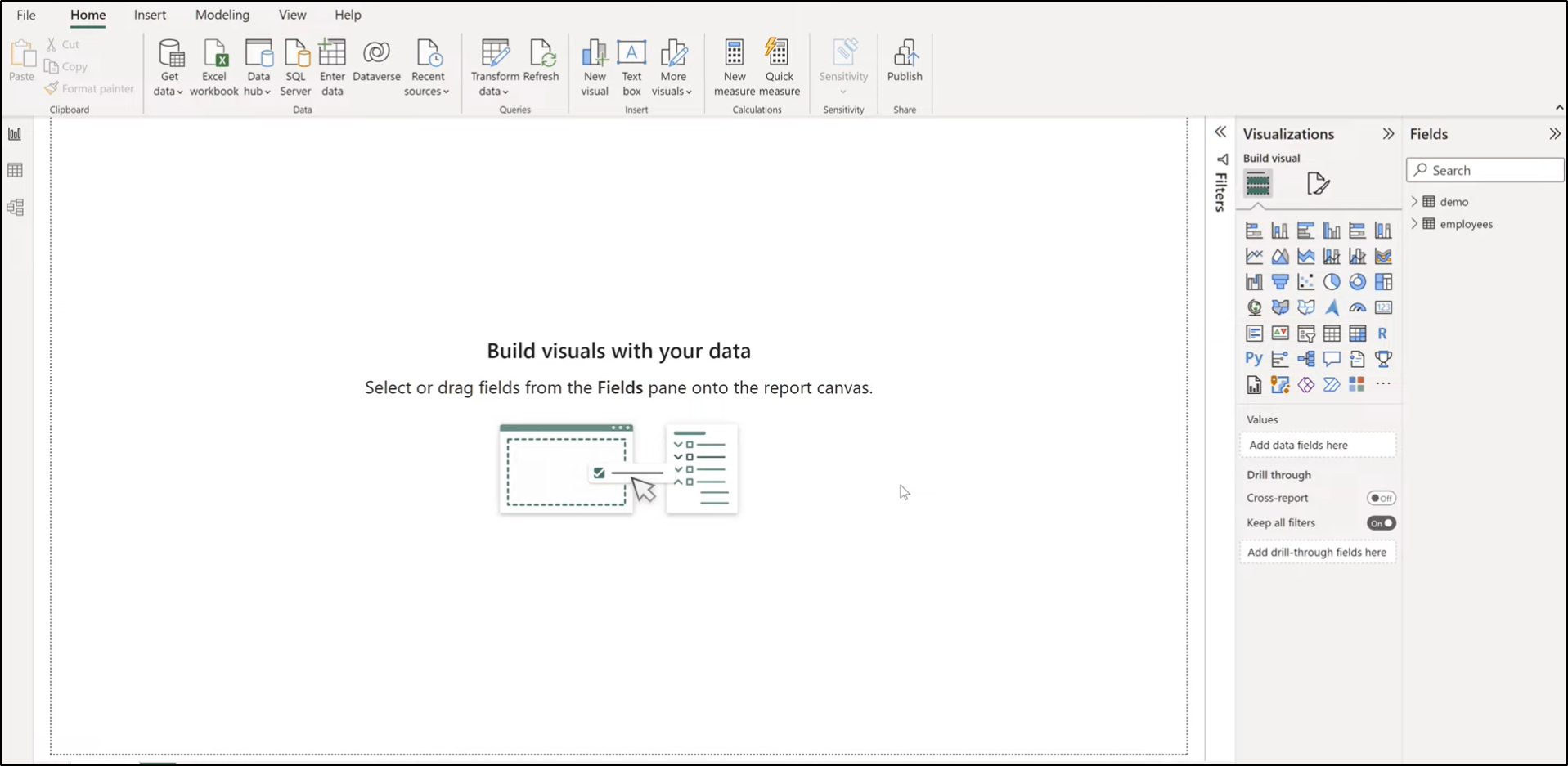
-
You can read more about connecting Amazon Redshift to Power BI here.
Finding your DataChannel managed Redshift Warehouse details
-
Login to the DataChannel Console.
-
Access the Data Warehouse page by clicking on the Data Warehouse Tab on the sidebar.
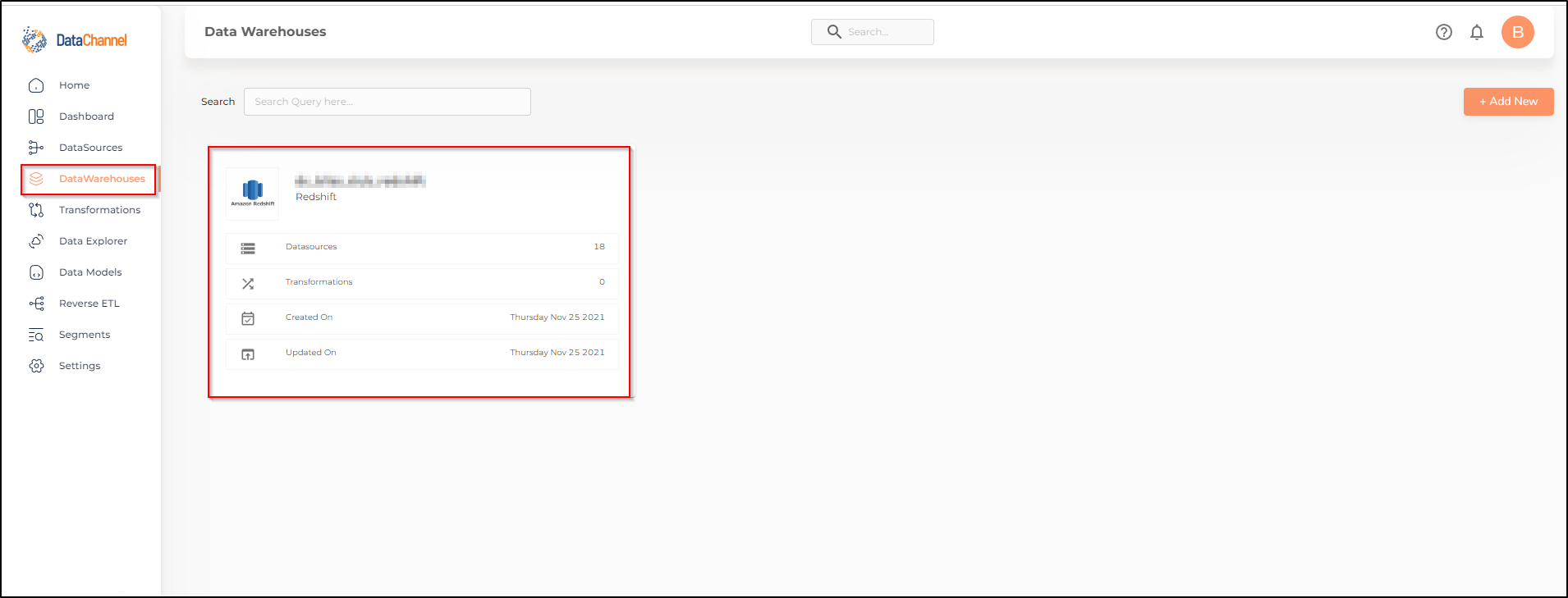
-
Click on the card of the data warehouse that you want to connect to Power BI .
-
The following screen would show up. All the required details will be available in the form that opens up.
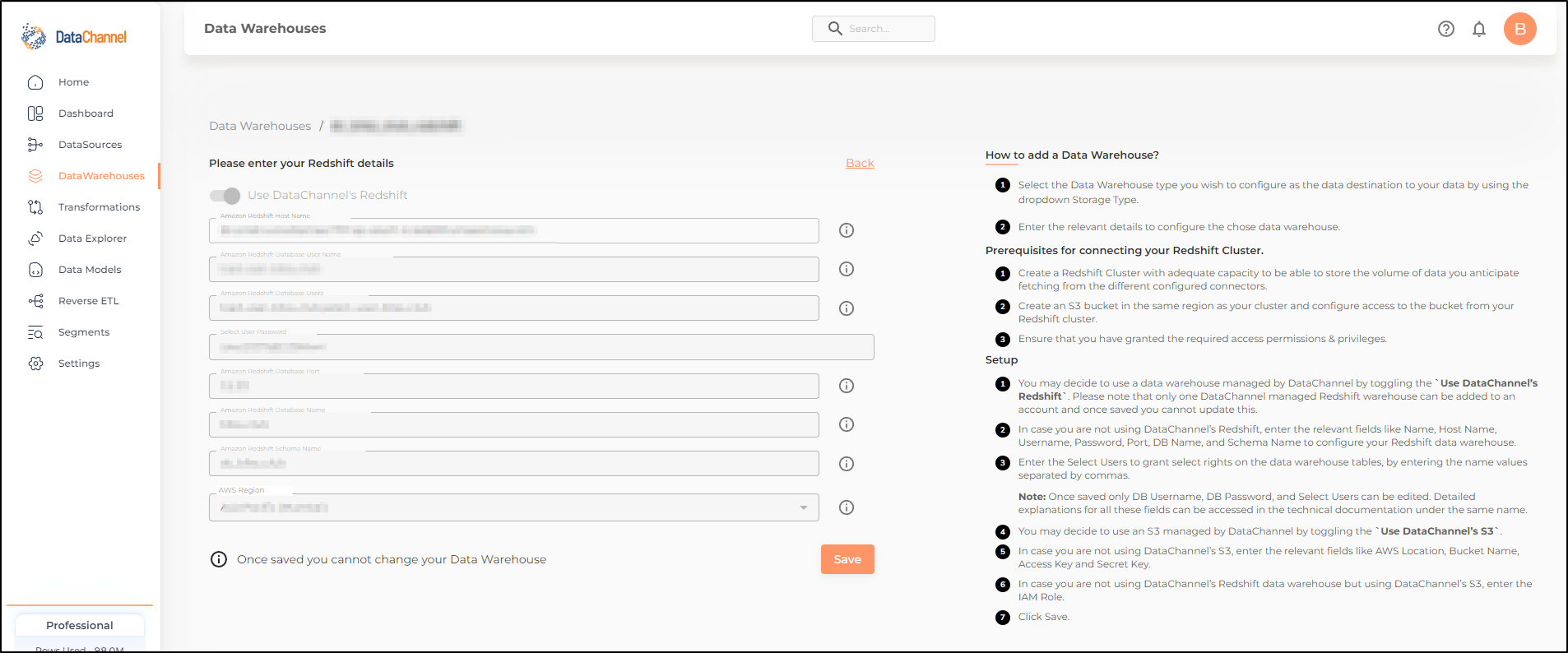
Still have Questions?
We’ll be happy to help you with any questions you might have! Send us an email at info@datachannel.co.
Subscribe to our Newsletter for latest updates at DataChannel.